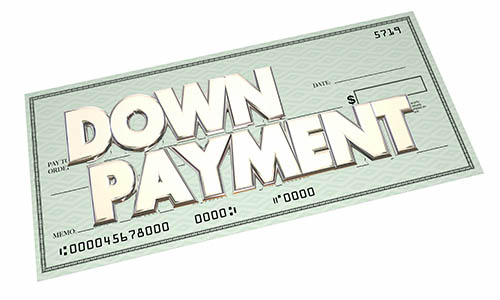3 Considerations When Making A Down Payment
 One of the challenges you will face when deciding how much money to put down on your new home is whether to put down a larger down payment or to take a bit of money from your down payment and use it to pay “discount points” to lower your interest rate.
One of the challenges you will face when deciding how much money to put down on your new home is whether to put down a larger down payment or to take a bit of money from your down payment and use it to pay “discount points” to lower your interest rate.
There are pros and cons to doing both and each borrower’s situation will be different so it’s important to understand which option is best for your individual need.
Some Factors You Should Consider Include:
- Cost Of Borrowing – generally speaking, to lower your interest rate will mean you pay a premium. Most lenders will charge as much as one percent (one point) on the face amount of your loan to decrease your mortgage interest rate. Before you agree to pay discount points, you need to calculate the amount of money you are going to save monthly and then determine how many months it will take to recover your investment. Remember, discount points are normally tax deductible so it may be important to talk to your tax planner for guidance.
- Larger Down Payment Means More Equity – keep in mind, the larger your down payment, the less money you have to borrow and the more equity you have in your new home. This is important for borrowers in a number of ways including lower monthly payments, potentially better loan terms and possibly not having to purchase mortgage insurance depending on how much equity you will have at the time of closing.
- Qualifying For A Loan – borrowers who are facing challenges qualifying for a loan should weigh which option (discount points or larger down payment) is likely to help them qualify. In some instances, using a combination of down payment and lower rates will make the difference. Your mortgage professional can help you determine which is most beneficial to you.
There is no answer that is right for every borrower. All of the factors that impact your mortgage loan and your overall financial situation must be considered when you are preparing for your home mortgage loan.
Talking with your mortgage professional and where appropriate your tax professional will help you make the decision that is right for your specific situation.
 Purchasing a home is a major decision, and it could be the most expensive financial transaction somebody ever makes. Therefore, it is important to get this right. One of the biggest hurdles for a new homeowner is coming up with enough money for the down payment. A lot of people believe they require 20 percent down to purchase a home. Saving this amount of money can be overwhelming, and some people are wondering, is this really necessary? There are several key points to keep in mind.
Purchasing a home is a major decision, and it could be the most expensive financial transaction somebody ever makes. Therefore, it is important to get this right. One of the biggest hurdles for a new homeowner is coming up with enough money for the down payment. A lot of people believe they require 20 percent down to purchase a home. Saving this amount of money can be overwhelming, and some people are wondering, is this really necessary? There are several key points to keep in mind.  In the current economy, there are a lot of millennials who are thinking about buying a home; however, the price of homes is rising quickly. It can be challenging for millennials to save the money they need to buy a home. When this is combined with other monthly expenses they have, millennials might be financially unprepared to buy a home.
In the current economy, there are a lot of millennials who are thinking about buying a home; however, the price of homes is rising quickly. It can be challenging for millennials to save the money they need to buy a home. When this is combined with other monthly expenses they have, millennials might be financially unprepared to buy a home.